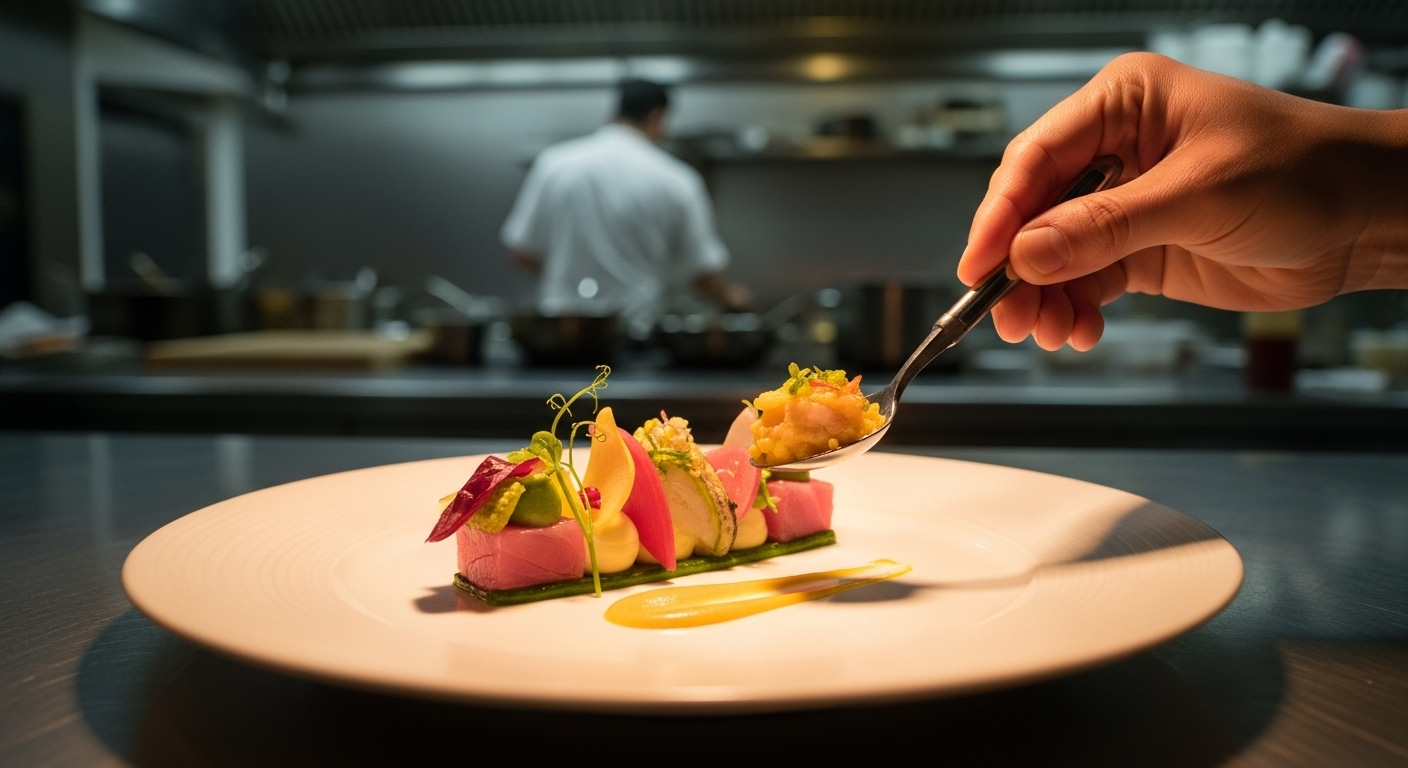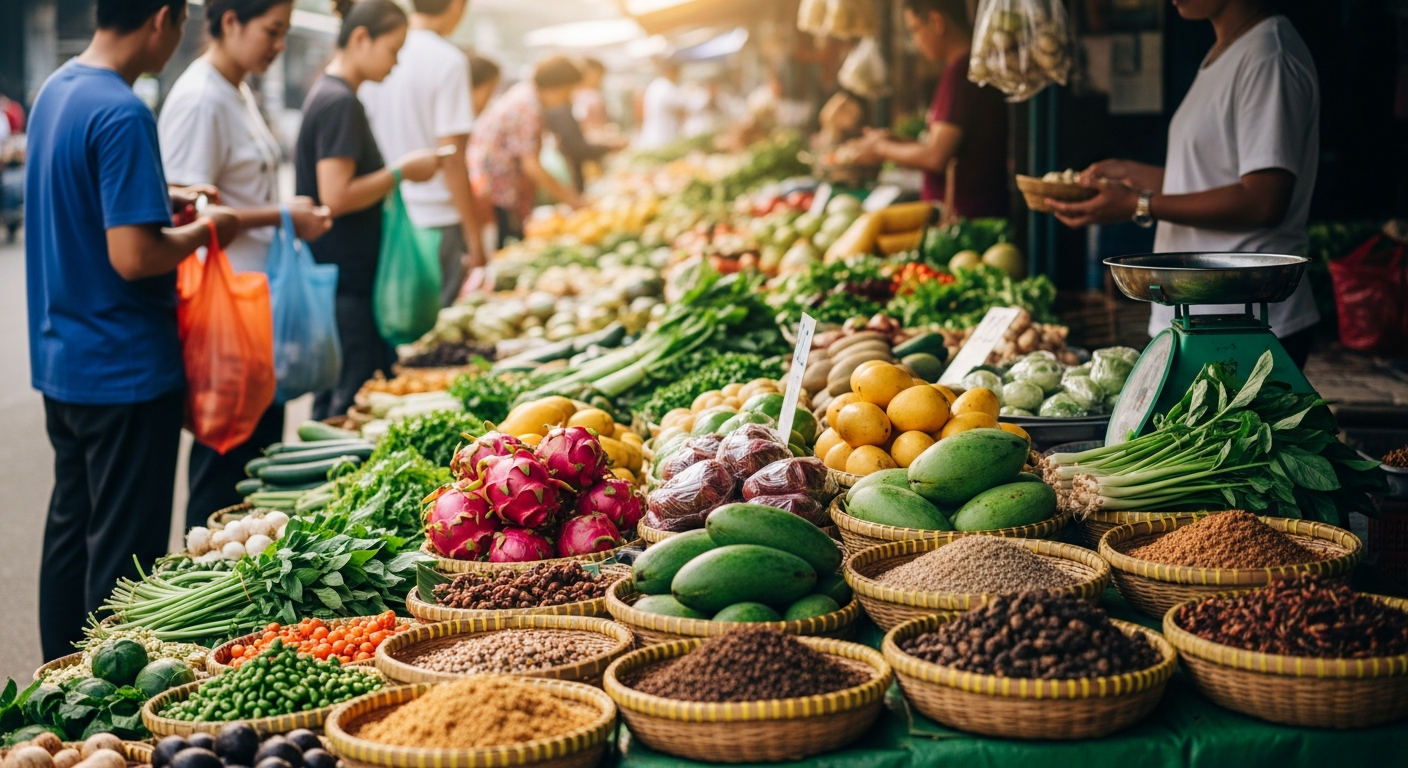Culinary Nomadism: The Art of Traveling Through Taste
From bustling street markets to hidden local gems, a new breed of travelers is embarking on journeys guided by their taste buds. Culinary nomadism, the practice of planning trips around food experiences, is reshaping the way we explore the world. This gastronomic adventure goes beyond mere sustenance, offering a deep dive into cultures, traditions, and local ways of life through the universal language of food.

In the early 2000s, food tourism began to gain traction as a niche market. Television shows featuring celebrity chefs exploring far-flung destinations popularized the idea of travel centered around cuisine. As social media platforms emerged, food photography became a cultural phenomenon, further stoking the flames of culinary wanderlust.
The Rise of Food-Focused Itineraries
Today, culinary nomadism has matured into a sophisticated form of travel. Tourists are no longer content with simply sampling local dishes; they seek immersive experiences that connect them with the heart of a destination’s food culture. This shift has given rise to specialized tour operators and travel agencies that craft bespoke, food-centric itineraries.
These journeys might include guided market tours, cooking classes with local chefs, visits to artisanal producers, and meals in both Michelin-starred restaurants and humble family-run eateries. The goal is to provide a comprehensive understanding of a region’s culinary landscape, from farm to table.
Beyond the Plate: Cultural Immersion Through Food
Culinary nomadism offers more than just gustatory pleasures; it serves as a gateway to cultural understanding. Food is inextricably linked to history, geography, and social customs. By delving into a destination’s cuisine, travelers gain insights into local traditions, agricultural practices, and even economic realities.
For instance, exploring the sushi culture in Japan goes beyond tasting raw fish. It involves understanding the importance of seasonality, the art of presentation, and the etiquette surrounding the dining experience. Similarly, participating in a traditional Moroccan tagine preparation can offer lessons in hospitality, communal dining, and the significance of spices in North African culture.
The Impact on Local Communities
As culinary nomadism gains popularity, it’s having a significant impact on local economies and food systems. Many destinations are recognizing the potential of gastronomy as a driver of tourism and are investing in culinary heritage preservation and promotion.
This trend is particularly beneficial for rural areas and small producers. Farms that offer tours and tastings, small-batch wineries, and artisanal food makers are finding new revenue streams through culinary tourism. Moreover, the emphasis on local and authentic experiences is helping to preserve traditional cooking methods and ingredients that might otherwise be lost to modernization.
Challenges and Considerations
While culinary nomadism offers numerous benefits, it’s not without challenges. The influx of food-focused tourists can lead to overtourism in popular culinary destinations, potentially disrupting local communities and food systems. There’s also the risk of commodification, where authentic experiences are replaced by staged, tourist-friendly versions.
Sustainability is another crucial consideration. As travelers seek out unique and exotic ingredients, there’s a need to ensure that increased demand doesn’t lead to overexploitation of resources or unethical farming practices.
Responsible culinary nomads are increasingly aware of these issues and are seeking ways to minimize their impact. This includes supporting sustainable food practices, respecting local customs, and being mindful of food waste.
Savor the Journey: Essential Tips for Culinary Nomads
-
Research seasonal specialties before planning your trip
-
Venture beyond tourist hotspots to find authentic local eateries
-
Learn basic food-related phrases in the local language
-
Be open to unfamiliar flavors and cooking methods
-
Consider food allergies and dietary restrictions when planning your journey
-
Participate in cooking classes or food tours led by local experts
-
Visit markets and food festivals to experience the vibrant local food culture
-
Practice responsible consumption and be mindful of food waste
-
Document your culinary adventures, but be respectful of local customs regarding photography
-
Engage with local producers and artisans to gain deeper insights into food traditions
A World of Flavors Awaits
Culinary nomadism represents a profound shift in the way we approach travel and cultural exploration. By centering our journeys around food, we open ourselves to a richer, more nuanced understanding of the world. As this trend continues to evolve, it promises to create more meaningful connections between travelers and destinations, one meal at a time. Whether you’re a seasoned gourmand or a curious novice, the world of culinary travel offers endless opportunities for discovery, learning, and unforgettable experiences.






